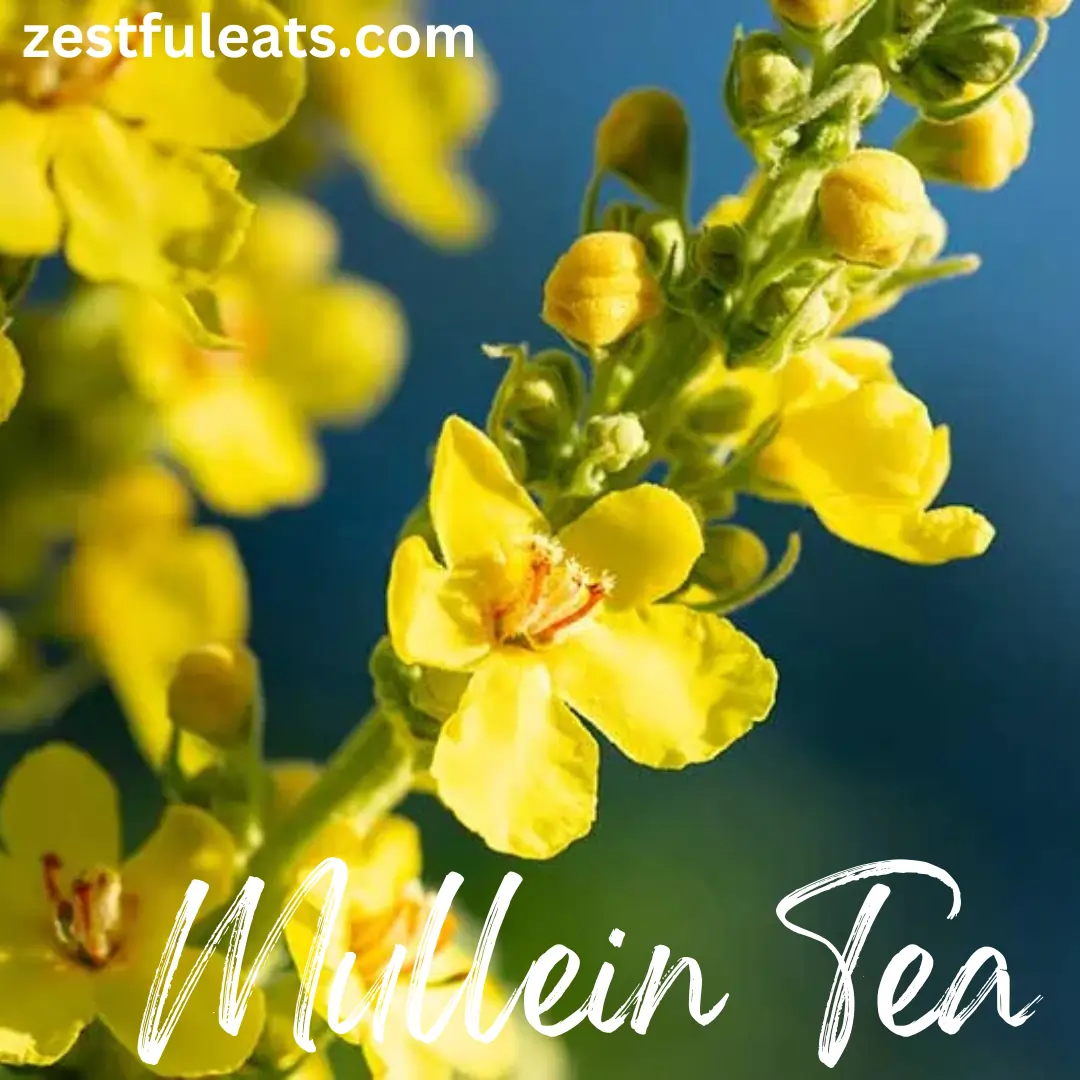Mullein Tea: A Traditional Remedy for Respiratory Health
Exploring the Benefits and Preparation of Mullein Tea
Although human studies are sparse, laboratory experiments indicate that mullein tea could alleviate respiratory ailments like asthma and may combat viruses and bacteria.
For centuries, mullein tea has been a popular herbal drink utilized for treating numerous conditions, notably persistent coughs, colds, and asthma.
This tea, known for its deep, aromatic flavor, is crafted from the leaves of the common mullein (Verbascum thapsus), a plant indigenous to Europe, Africa, and Asia.

This article delves into the applications, advantages, and potential drawbacks of mullein tea, providing insights on how to prepare it.
Understanding the Health Benefits of Mullein Tea
Health Advantages of Mullein Tea
Mullein tea is recognized for its numerous potential health benefits, especially in treating respiratory issues.
Easing Respiratory Conditions
Mullein has been a traditional remedy for respiratory conditions for millennia. It is particularly noted for easing asthma symptoms, such as coughing, wheezing, and shortness of breath. Studies in animals and humans indicate that mullein tea helps by reducing inflammation and relaxing muscles in the respiratory tract.
The plant’s flowers and leaves are also used to manage other respiratory diseases like tuberculosis, bronchitis, tonsillitis, and pneumonia, although direct human studies on these effects are still pending.
Antiviral Capabilities
Research in laboratory settings suggests mullein might have significant antiviral properties. For example, one study found that mullein extract was particularly effective against the influenza virus. Additionally, mullein is shown to counteract pseudorabies, a virus related to the herpes family, though more human studies are needed to confirm these effects.
Antibacterial Properties
Mullein tea is also known for its antibacterial properties. Research shows that mullein extract can inhibit several bacteria strains, including Bacillus cereus, which is commonly found in soil and food. It has been noted to curb the growth of bacteria responsible for infections like E. coli and Streptococcus pyogenes.
Limited studies involving humans have been conducted, but one study involving 180 children suggested mullein could help treat ear infections, typically bacterial in nature. In this study, ear drops containing mullein and other herbal extracts reduced ear pain significantly, though it’s unclear how much of this effect was due to mullein alone.
More comprehensive human studies are necessary to further validate these findings.
Exploring Potential Risks of Mullein Tea
Mullein Tea: Considerations and Cautions
Mullein tea is generally safe for most people, posing minimal risk of side effects.
Skin Sensitivity and Irritation
Some individuals might experience skin irritation when in direct contact with the mullein plant due to its tiny hairs. It is advisable to handle the herb with care if you have sensitive skin.
Throat Irritation
The fine hairs on the mullein plant can also cause throat irritation. To avoid this, it’s crucial to strain the tea properly before consumption.
Considerations for Special Populations
Currently, there is no research on the safety of mullein tea for pregnant or breastfeeding women. Therefore, these groups should seek advice from a healthcare provider before consumption.
If you experience any adverse effects after drinking mullein tea, it may be wise to reduce your intake or discontinue use altogether.
Preparing Mullein Tea: A Simple Guide
Steps to Brew Mullein Tea
Mullein tea products, including prepackaged bags, extracts, capsules, tinctures, and dried leaves, are readily available at health stores and online.
Many enthusiasts also cultivate mullein in their gardens and dry the leaves themselves.
Brewing with Dried Leaves
To prepare the tea, place a small handful of dried mullein leaves into an 8-ounce (240-ml) cup of boiling water. Allow the leaves to steep for 15–30 minutes. To avoid throat irritation, thoroughly strain the tea using a fine strainer or cheesecloth to remove the leaves.
Enhancing Flavor
If preferred, enhance the flavor of your mullein tea with additions like raw honey, cinnamon, or a lemon wedge for a touch of sweetness or zest.
Key Insights on Mullein Tea
Overview of Mullein Tea
Mullein tea is brewed from the leaves of the mullein plant. While human studies are scarce, laboratory research indicates that this tea might alleviate respiratory conditions like asthma and combat viruses and bacteria.
This aromatic tea is simple to prepare and typically comes with minimal side effects.
FAQS
What is the best form of mullein to take?
The optimal way to consume mullein is as a leaf tea. Steep 1 to 2 teaspoons of dried mullein leaves in hot water for 10 to 15 minutes. This tea can be enjoyed up to three times a day and is beneficial for respiratory, digestive, and musculoskeletal health.
Who should not drink mullein tea?
Individuals should exercise caution with mullein tea, particularly those who are pregnant or breastfeeding, due to insufficient information on its safety. Additionally, mullein seeds may contain toxins and are considered possibly unsafe for consumption.
What medications does mullein tea interact with?
Mullein tea may reduce the effectiveness of antidiabetic drugs and enhance the effects of muscle relaxants and lithium. It also has a diuretic effect, which could interact with prescription diuretics. Consult a doctor before combining mullein with these medications.
